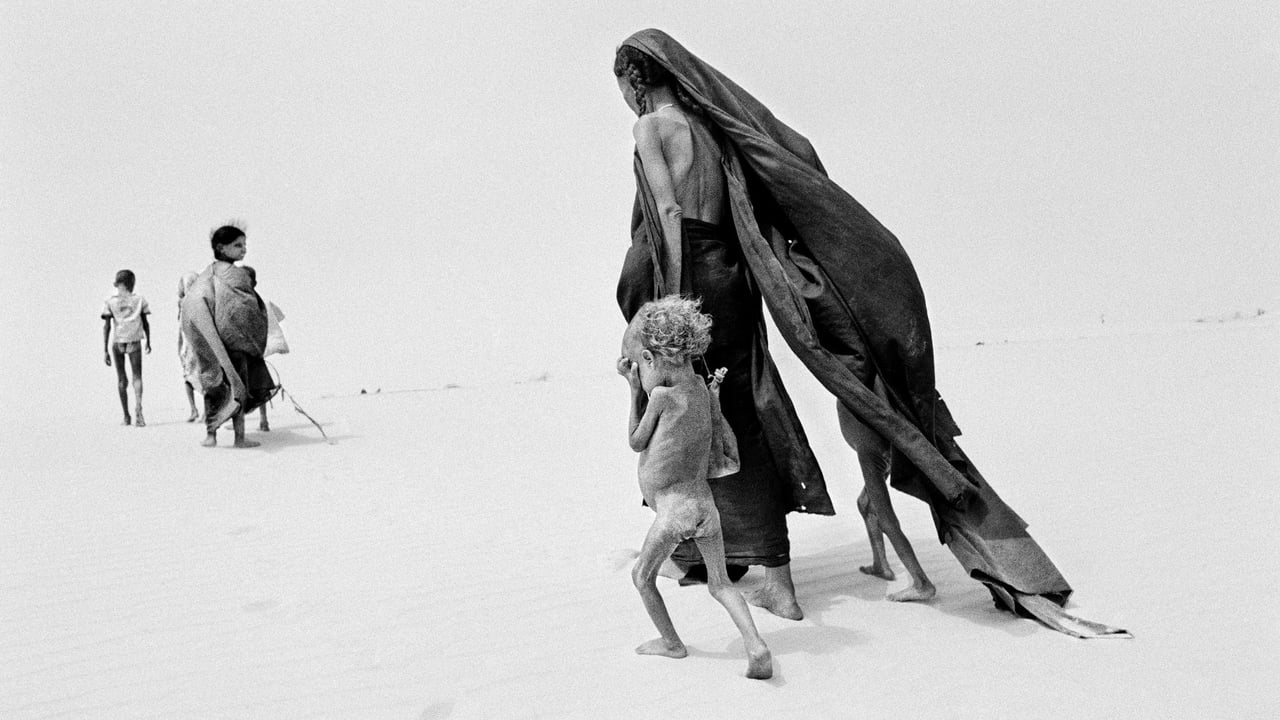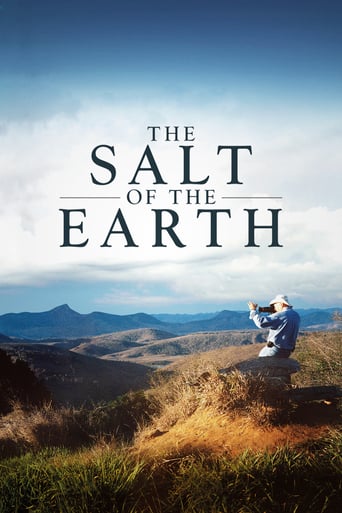

A different way of telling a story
... View MoreAll of these films share one commonality, that being a kind of emotional center that humanizes a cast of monsters.
... View MoreEasily the biggest piece of Right wing non sense propaganda I ever saw.
... View MoreWorth seeing just to witness how winsome it is.
... View MoreBrazilian photographer Sebastao Salgado's understanding that a portrait is an exchange between two people, his unfailing compassion and his technical skill have created some of the most memorable photographs of the last 50 years. Salgado's exhibition Exodus, dedicated to refugees, made him an observer of genocide in former Yugoslavia and Rwanda and left him haunted and defeated by the savagery of our species. But helped by his long term creative partner, his wife Lelia, the photographer went on to document the unspoiled places of our earth in Genesis, with photos of an almost hallucinatory beauty. Wim Wenders' film, a masterclass in the power of documentary simplicity, is a moving tribute to the man and his work.
... View MoreThe Salt of Earth is a movie about pictures of our world, not just photos, but a critical vision of our society, a son to father movie, about how a former economist saw the world thought his camera. This documentary could be just a about a great photographer, but it goes beyond, and show us about the human side of ourself, a side sometimes we forget. To take a perfect pictures may took years, may took risk of life, may took a feeling, but always will need a human instinct to see, what is almost impossible to see for everyone else. The main argument in this movie isn't about how take pictures, but what they means for us, and what it shows, a war, a strong little boy man, a beautiful woman going to die, human greed for gold, or just how the world don't need us to be beautiful. The director show a movie about human nature, in best picture, but not in the best of human, sometimes, the best picture show the worst of human nature. This is the best lesson from this movie, human nature is complex, and sometimes chaotic.
... View MoreThe sound of 50,000 people in a gold mine in Brazil takes one back to the time the pyramids were built. You may hear the gold whispering. Here there are slaves to the idea of getting rich. Among the Tarahumera of Mexico no one walks so much as flies. Witness in the Balkans, Iraq, Rwanda and elsewhere how contagious hatred can be. The beautiful and terrible images of photographer Sebastião Salgado are seared in my consciousness like a profound dream. This is thanks to the masterful storytelling by the documentary filmmakers. They take viewers around the world and on waves of emotion, to understand photographer Sebastião Salgado's life and unique way of seeing things.The portrait is extremely powerful. Sebastião's adventures brought him in contact with diverse peoples with very different senses of time, rhythms and ways of thinking. Behind every mountain, in each person's eyes, there is a compelling story. The film went in surprising directions and is unpredictable. This may be different if you are familiar with Sebastião and his work, which I was not. The real life, words, images and stories in this film are enthralling. It is fascinating to understand what healed Sebastião's despair, but to reveal this would mar the ending, which I will not do. You should see for yourself! Available on Netflix.
... View MoreTHE SALT OF THE EARTHA documentary on the photographer, Sebastiao Salgado's passion for exposing worlds that are hidden from our view as well as the undercurrents of man's greed, violence and inhumanity - all through what co-director Wim Wenders explains is the process of " drawing with light." The other director is Juliano Ribeiro Salgado, the photographer's son. For many years, I have been beguiled by Salgado's black and white imagery, particularly as source material and inspiration for many of my own late 1980s pastels. His representations are stark and at the same time filled with an expanse of tones - from the deep darkness of coal to the blinding whites which shine with the force of incorporeality; a range of imperceptibly varied grays sandwiched in-between - all breathtakingly beautiful and often reduced to abstract patternings which are in danger of overtaking his subjects, but Salgado is a master at balancing form and content.I was particularly moved by his photographs of the fierce deprivation that droughts and famine had wreaked on Sub- Saharan Africa - particularly Ethiopia. Because Salgado exposed situations that many people were not aware of, his photos drilled a space for perception into our consciousness. Salgado has traveled to over 100 countries - projects often lasted years and the resulting books include OTHER AMERICAS, WORKERS, SAHEL - THE END OF THE ROAD, MIGRATIONS, Africa, and most recently GENESIS - the book that became his respite after years away from his native environs, witnessing the globe's devastation, including chronicling the genocide in Rawanda and the Congo. By the late 1990's he was heartbroken: "We humans are a terrible animal; we are extremely violent Our history is a history of war; it's an endless story My soul was sick I no longer believed in anything, in any salvation for the human species." (Quotes from Kenneth Turan's review in LA Times.) THE SALT OF THE EARTH invites us to enter Salgado's personal sphere; we meet his beloved wife Leila, the enduring relationship of his life, the editor of his photographs; the mother of Juliano and Rodrigo - the youngest born with Down syndrome; the compassion and love that unites the entire family in their own personal struggles with domesticity, and the enormous achievement of reclaiming the cattle ranch that was once Salgado's home near the town of Aimores in Brazil's state of Minas Gerais. Memories of the fecund greenery and waterfalls were incised into Sebastiao's childhood recollections and when he returned in the 1990's his homeland was an environmental disaster - dry and parched. Salgado, his spirit quenched by regarding the pillage, and spoliation around the universe was re-invigorated by Leila's dream of planting a forest in Brazil starting with a few trees and "returning the property to its natural state of subtropical rainforest and in April 1998 they founded the Instituto Terra, an environmental organization which has now been declared a Private Natural Heritage Reserve, some 17,000 acres of deforested and badly eroded land have undergone a remarkable metamorphosis More than four million seedlings native to Brazil's Atlantic Forest have been raised in the institute's own nursery " * This resuscitation propelled Salgado to travel again focusing on the beauties of the planet, resulting in his latest book GENESIS. ( *About us -The Instituto Terra.) http://bit.ly/1JQQzvd The documentary uses Salgado's majestic photographs interspersing them with site visits to previously unrecorded locations, including old color footage; using his voice and conversations to great effect. We get a sense of the quiet strength of this man, his commitment to justice and the deep suffering that his vision extracts with the lens of a camera. The plethora of interchangeable living beings moving about silhouetted against the background of clouds billowing in the infinite skies, underscore the brevity of time and existence. We are only here for a short interval and Salgado's output is a plea for respect, justice and accommodation among the men/women/animals and the frangible cosmos we all inhabit.
... View More